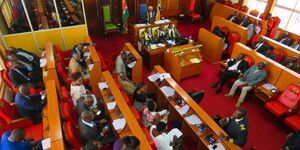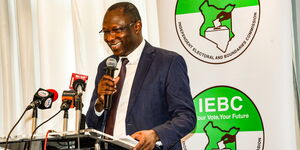The Trinidad and Tobago government has pulled out of the Kenyan-led United Nations Security Council-sanctioned Multinational Security Mission (MSS) to Haiti.
Speaking to the press on Tuesday, April 2, the country’s Foreign and Caricom Affairs Minister, Dr Amery Browne, stated that the government had reached a final decision regarding sending troops to help fight gangs in Haiti.
“Trinidad and Tobago has been in support of action to treat the Haiti situation. We have provided financial support as well as human resources to Caricom Good Offices efforts, to the Eminent Persons Group and to the other diplomatic foundation that has been laid in preparation for the Multinational Force,” Browne stated
In a clear communication, Trinidad’s Prime Minister noted that the country was not in a position to contribute military forces to the disturbed Caribbean nation at this stage.
“Contributions of boots on the ground as it were, the prime minister has made it very clear that is the current position of the Republic of Trinidad and Tobago, that we are not in a position to contribute military forces, police officers or boots on the ground at this stage for that particular effort,” he added.
The country however promised to work with the other members of the Caribbean Community regional bloc, CARICOM to address the issues facing Haiti.
“So that position is maintained, but, we will continue to receive updates and to contribute to Caricom and further interface with that very concerning crisis.”
The CARICIOM bloc met with leaders from other nations including the United States and Canada on March 11, to appoint a seven-member presidential panel that would pick a new interim Prime Minister following the resignation of Haiti's former leader Ariel Henry.
The deployment of Kenyan police to Haiti has hit several hurdles ahead of the mission. The resignation of Ariel Henry called for the Kenyan government to halt the plans waiting for a proper governing body to get instilled.
However, at the beginning of April, disagreements arose between the political leaders involved in the formation of a transition council.
The outgoing Prime Minister cast doubt on the legitimacy of the mediation body. He further termed the council unconstitutional and thus illegal.
Interior Cabinet Secretary Kithure Kindiki and the Haiti Security Minister on March 1 signed an agreement to deploy officers to help restore peace in Haiti. The deal was sealed at the State House in the presence of President William Ruto and Haiti Prime Minister Ariel Henry.












